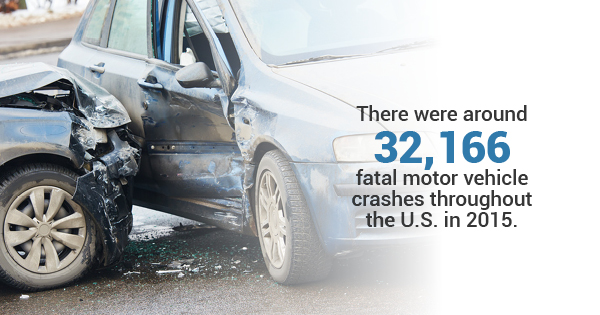How Long Do I Have to File a Personal Injury Claim After an Accident?
In the aftermath of a car accident, there will be a million thoughts running through your head. Do you need medical treatment? Will you have to miss work? How will you pay for your medical bills? Will insurance cover vehicular damage costs through a car accident claim? And will someone else be held legally responsible for any injuries you’ve sustained? While there were around 32,166 fatal motor vehicle crashes throughout the U.S. in 2015, many thousands more resulted in minor or major injuries. If this applies to your situation, you may also be wondering how long you actually have to file a personal injury claim after an accident. Today’s post will aim to answer that question.
Whether you’re filing a car accident claim with an insurer or a personal injury claim in a court of law, there are definite time limits that must be followed. State laws and insurer regulations can impact how long you have to file a car accident claim with an insurer. If you plan to file a personal injury suit with help from an attorney, you’ll generally have two years from the date of the accident to do so. That doesn’t mean your case needs to be resolved within two years; it simply means the case needs to be filed with the court within that time span. Keep in mind that if you’re only planning to file an insurance claim, you should still be aware of the statute of limitations for a personal injury claim; you shouldn’t delay the process in case you decide it’s essential to file a suit later on.
However, that doesn’t mean you should file a lawsuit the day after your accident. In some cases, it may be better to wait for a little while to assess the severity of your injuries. That way, you and your attorney will have a more complete idea of the damages you’ve sustained and how to build a case that accurately reflects the harm caused to you. It’s also important to refrain from accepting any settlement offer until your maximum medical improvement (MMI) can be determined. This can have a profound effect on the financial impact of the injuries you’ve sustained (and therefore the compensation you’ll seek).
If you are receiving ongoing medical treatment for the injuries from your accident and another driver is at fault, your lawyer will likely recommend that you go ahead and file a personal injury suit. There’s no harm in getting the claims process started relatively early, so long as the severity of your injuries can be assessed accurately. Ultimately, your attorney will be your best source of information as to when (or if) a case should be filed.
Knowing exactly what to do after a car crash isn’t easy. This period can be confusing and overwhelming, which is just one reason why accident victims turn to personal injury lawyers to help them. To find out more about filing a personal injury claim after an accident, contact us today to schedule a consultation.

